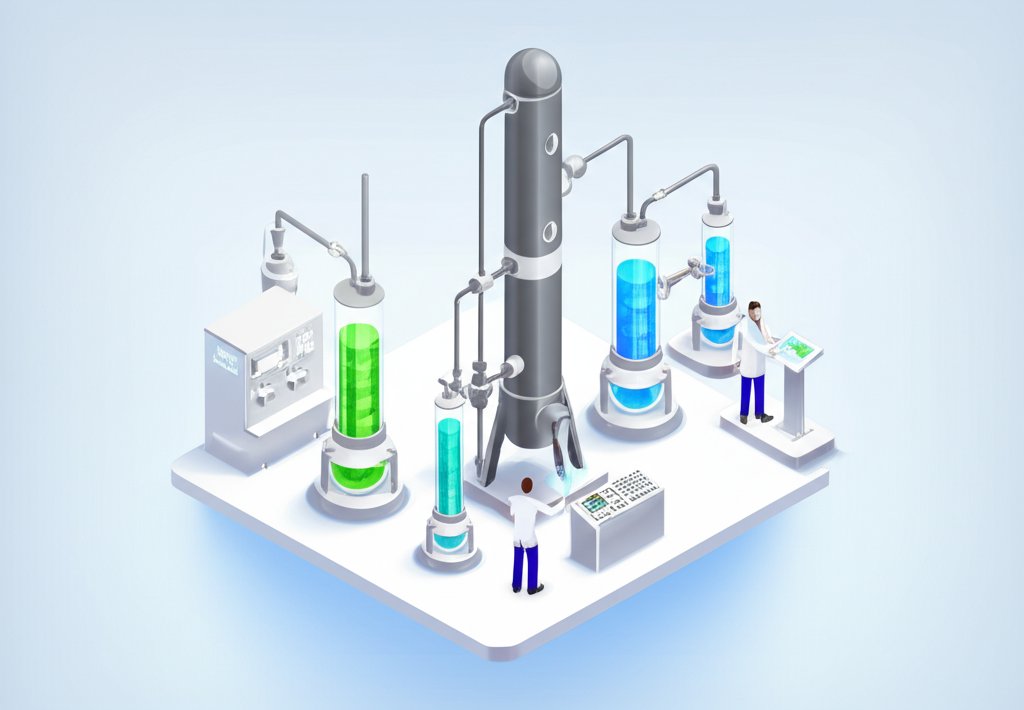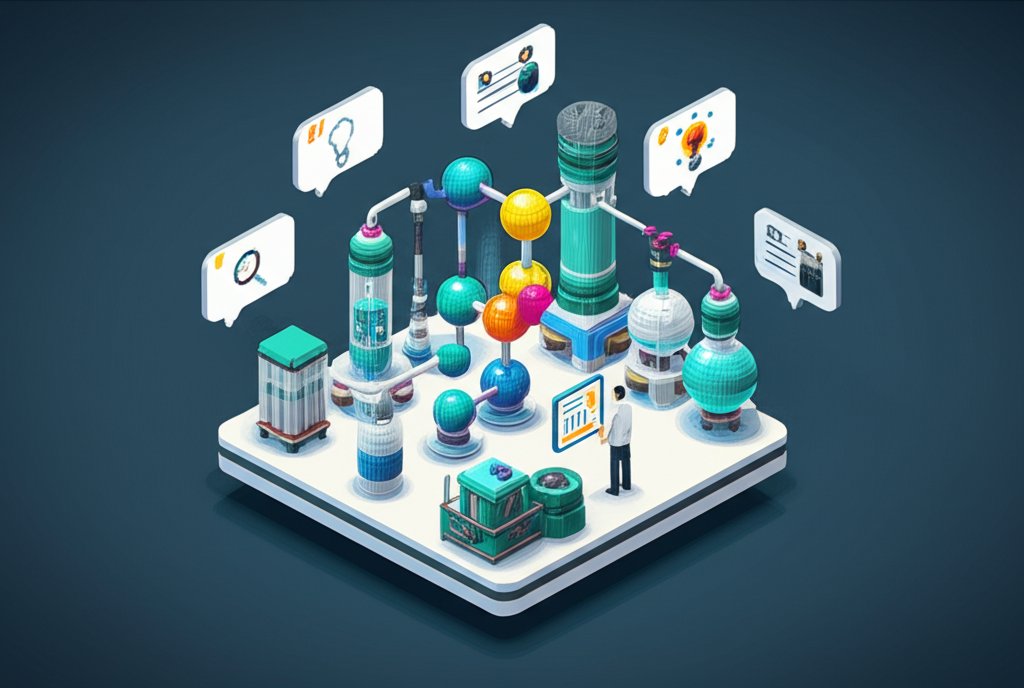Have you ever stopped to wonder about the hidden forces behind your morning coffee, the smartphone in your hand, or even the air you breathe? The answer often traces back to an extraordinary field that blends science, design, and innovation: chemical engineering. Far from being confined to sterile laboratories, chemical engineers are the unsung architects of modern life, transforming raw materials into the essential products and processes that define our existence.
Many people have a vague idea of what a chemical engineer does, often picturing someone in a lab coat mixing chemicals. But the reality is much more dynamic, impactful, and, dare we say, mind-blowing! This article will peel back the layers to reveal 10 mind-blowing chemical engineering fun facts that highlight the incredible versatility, historical significance, and future-shaping power of this vital discipline. Prepare to be astonished by how deeply modern chemical engineering touches every aspect of our world, offering a treasure trove of fascinating engineering facts.
Unveiling the World of Modern Chemical Engineering: Beyond the Beaker

Chemical engineering is an expansive field that applies principles from chemistry, physics, biology, and mathematics to design, operate, and optimize industrial processes. It’s about taking discoveries made in a lab (chemistry) and figuring out how to produce them safely, efficiently, and economically on a massive scale (engineering). This crucial distinction makes chemical engineers indispensable across virtually every industry, from energy and environmental protection to healthcare and consumer goods.
Through understanding these engineering facts, you’ll gain a renewed appreciation for the ingenuity and problem-solving skills of a chemical engineer. From pioneering historical figures to cutting-edge technologies, these insights will illuminate the profound impact of modern chemical engineering on society.
10 Mind-Blowing Chemical Engineering Fun Facts
Dive into these fascinating insights that showcase the transformative power and surprising reach of chemical engineering.
The constant innovation within chemical engineering mirrors the rapid advancements we see in the tech world, leading to some truly interesting facts about technology that shape our daily lives.
1. The Undisputed “Father” Who Defined Modern Chemical Engineering
While chemistry has ancient roots, the formal discipline of chemical engineering is relatively young. It was largely codified in the late 19th century by George E. Davis, an English industrial consultant. In 1887, Davis delivered a series of twelve lectures at the Manchester Technical School, which formed the basis for his seminal “Handbook of Chemical Engineering” (1901). His revolutionary contribution wasn’t just about chemicals, but about standardizing the “unit operations” – fundamental steps like filtration, distillation, and crystallization – that are common across various chemical processes. By breaking complex manufacturing into these manageable units, Davis provided a systematic framework that truly birthed modern chemical engineering, allowing for its study and application as a distinct profession. Without his vision, the field might have remained a loose collection of applied chemistry rather than the robust, process-oriented discipline it is today.
2. Chemical Engineering vs. Chemistry: The Scale-Up Superpowers
This is one of the most crucial engineering facts to grasp: chemical engineering is fundamentally different from chemistry. While chemistry focuses on the composition, structure, properties, and reactions of matter at a molecular level, chemical engineering takes those chemical reactions and scales them up for industrial production. Think of it this way: a chemist might discover a new plastic in a test tube, but a chemical engineer designs the entire factory, specifies the reactors, optimizes temperatures and pressures, ensures safety, minimizes waste, and makes sure that plastic can be produced by the ton, reliably and affordably. They bridge the gap between scientific discovery and commercial reality, turning theoretical concepts into practical, everyday products.
3. From Molecules to Mars: A Universe of Applications
The scope of chemical engineering is breathtakingly vast, making it one of the most versatile engineering disciplines. Forget just oil and gas! Chemical engineers are vital in industries ranging from:
4. The Invisible Architects of Your Daily Life
You interact with the fruits of chemical engineering countless times a day without even realizing it. The detergent that cleans your clothes, the plastic bottle holding your water, the pure water itself coming from your tap, the fuel in your car, the dyes in your clothing, the ingredients in your cosmetics, the microchips in your smartphone, the asphalt on the roads, and even the fertilizer that grows your food – all owe their existence and efficient production to chemical engineers. They are the invisible architects ensuring quality, safety, and efficiency in processes that deliver the goods we rely on every single moment. This makes the understanding of chemical engineering fun facts incredibly relevant to everyone.
5. Sustainability Superheroes: Solving Global Challenges
In the era of climate change and resource scarcity, modern chemical engineering stands at the forefront of sustainability efforts. Chemical engineers are developing innovative solutions for some of the world’s most pressing environmental challenges. This includes:
6. The Digital Alchemists: Powering Industry with Software and AI
The image of a chemical engineer hunched over blueprints is outdated. Today, modern chemical engineering is deeply integrated with advanced computational tools. Chemical engineers are digital alchemists, utilizing sophisticated software for:
7. A Century of Innovation: From Dyes to DNA
The history of chemical engineering is a testament to continuous innovation. Early work focused on industrial chemicals like sulfuric acid and soda ash, essential for textiles and glass. The early 20th century saw the development of synthetic fertilizers (like the Haber-Bosch process, which revolutionized agriculture and sustained a booming global population), plastics, and synthetic rubber, profoundly impacting warfare and consumer goods. Mid-century brought advances in petroleum refining and petrochemicals. Today, modern chemical engineering is pushing boundaries in personalized medicine (e.g., drug delivery systems), nanotechnology (engineering materials at the atomic level), and even synthetic biology, showcasing an incredible journey of progress driven by these engineering facts.
8. The Multilingual Professionals: Bridging Science, Business, and Environment
A chemical engineer isn’t just a scientist; they are a multi-faceted professional. Their role demands a unique combination of skills: deep scientific understanding to analyze chemical reactions, strong engineering principles to design and optimize processes, acute economic awareness to ensure profitability and cost-effectiveness, and a profound commitment to safety and environmental regulations. They effectively “speak” the language of chemists, economists, safety officers, and environmentalists, acting as a crucial bridge between diverse disciplines to bring products to market successfully and responsibly. This interdisciplinary nature makes the field both challenging and incredibly rewarding.
9. Micro-Level Marvels: Engineering the Smallest Details for Big Impact
Chemical engineering isn’t just about massive industrial plants; it’s also about meticulous control at the molecular level. This leads to innovations in:
10. The Future is Chemical Engineering: Shaping Tomorrow’s World
Looking ahead, the demand for chemical engineering expertise is only set to grow. Chemical engineers will be at the forefront of addressing future global grand challenges. Imagine a world with:
The Indispensable Role of a Modern Chemical Engineer
The chemical engineer of today is a critical problem-solver, innovator, and guardian of efficiency and safety across countless industries. Their work directly impacts public health, economic growth, and environmental sustainability. From developing new sustainable packaging materials to optimizing pharmaceutical manufacturing lines, their expertise is invaluable.
The career path for a chemical engineer is diverse, leading to roles in research and development, process design, plant operations, environmental compliance, sales, and even management. The demand for their unique skill set, combining scientific knowledge with practical application, makes it a robust and financially rewarding profession. These engineering facts underscore why choosing modern chemical engineering is choosing a career at the cutting edge of progress.
Why These Engineering Facts Matter

These 10 mind-blowing chemical engineering fun facts serve to illuminate a field that is often misunderstood but profoundly impactful. They reveal that chemical engineering is not just about chemicals but about transforming raw materials and scientific discoveries into the products and technologies that power our homes, enhance our health, protect our environment, and drive our economy. Every chemical engineer contributes to a better, more efficient, and often more sustainable world, making these engineering facts a testament to human ingenuity.
Conclusion: Embrace the Chemical Engineering Revolution
From the historic contributions of George E. Davis to the cutting-edge innovations shaping our future, chemical engineering is a field of constant wonder and profound importance. We hope these 10 mind-blowing chemical engineering fun facts have opened your eyes to the pervasive and often unseen influence of chemical engineers in our daily lives.
The next time you enjoy your favorite beverage, use a plastic product, or benefit from a medical advance, remember the intricate processes and brilliant minds of modern chemical engineering that made it all possible. This isn’t just a science; it’s the art of transforming ideas into tangible reality, perpetually pushing the boundaries of what’s achievable.
FAQ: Your Questions About Chemical Engineering Answered
Q1: Who is often called the “Father of Modern Chemical Engineering”?
A1: George E. Davis, an English industrial consultant, is widely recognized as the “Father of Modern Chemical Engineering.” His lectures and “Handbook of Chemical Engineering” established the concept of “unit operations,” providing a systematic framework for the design and analysis of industrial chemical processes.
Q2: What is the main distinction between chemical engineering and chemistry?
A2: Chemistry focuses on the study of matter at the molecular level – its properties, composition, and reactions. Chemical engineering, on the other hand, applies these chemical principles, along with physics and mathematics, to design, optimize, and operate large-scale industrial processes for producing chemical products safely and efficiently. A chemist discovers; a chemical engineer builds and produces.
Q3: What industries heavily rely on chemical engineering?
A3: Chemical engineering is critical across a vast array of industries, including pharmaceuticals, petrochemicals, oil and gas, food and beverage, biotechnology, environmental protection, advanced materials, consumer goods, energy, and even space exploration.
Q4: How do chemical engineers contribute to product development?
A4: Chemical engineers are integral to product development by designing and optimizing the manufacturing processes that transform raw materials into finished goods. They ensure products are produced cost-effectively, safely, to high-quality standards, and with minimal environmental impact. They also innovate new materials and processes.
Q5: What kind of computer software do chemical engineers use for design and optimization?
A5: Modern chemical engineering heavily relies on advanced software. This includes Computer-Aided Design (CAD) for equipment and plant layout, process simulation software (like Aspen Plus or HYSYS) to model and optimize operations, and increasingly, data analytics platforms and AI tools for real-time process control and predictive maintenance.
Q6: Is chemical engineering a good career choice for someone interested in sustainability?
A6: Absolutely. Chemical engineers are at the forefront of developing sustainable solutions, including renewable energy technologies, carbon capture systems, advanced recycling processes, water purification methods, and the creation of biodegradable materials. It’s a field with immense potential for environmental impact.
Q7: What are some surprising everyday items influenced by chemical engineering?
A7: Many everyday items are products of chemical engineering, often surprisingly so. Think of the advanced plastics in your smartphone, the pure silicone in its microchips, the formulation of your toothpaste, the clean tap water you drink, the fuel that powers your transportation, and even the artificial sweeteners in your diet soda.
Q8: What skills are essential for a successful chemical engineer?
A8: A chemical engineer needs a strong foundation in chemistry, physics, and mathematics, excellent problem-solving abilities, analytical thinking, attention to detail, communication skills (to work with diverse teams), and a keen understanding of economic and safety principles. Adaptability and a willingness to learn new technologies are also crucial in modern chemical engineering.










